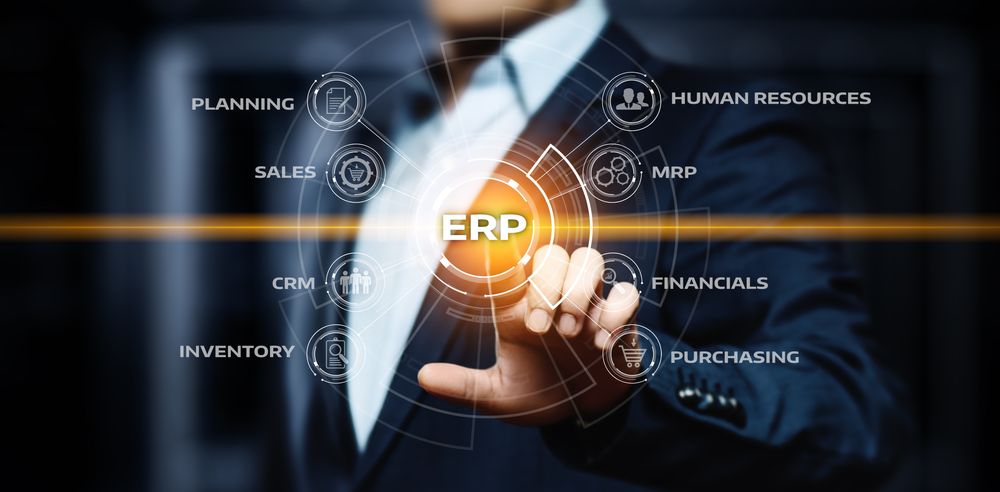All businesses have different departments responsible for handling tasks in the various segments of the business. However, these departments are still under one umbrella and need to work as such and have a central database for storing and sharing information and data. This is what enables smooth business operations. Otherwise, there will be complications.
If a business lacks a system where all functions can meet, work processes will be complicated, slow, and inefficient. With this, having a solution that syncs all departments is crucial. An enterprise resource planning (ERP) system is one such solution.
This article looks at the features and benefits of an ERP system for your business. Read on to learn more.


Table of Contents
Core features of an ERP system
ERP systems come in many varieties, but all aim to standardize, integrate, and streamline business processes across the various departments. Understanding the features of an ERP system will help you determine if it’s a good fit for your business. Here and five critical features of ERP systems: (1) (2)
1. Integration to different functions
Irrespective of the size of any business, it must deal with multiple management of functions such as sales, marketing, logistics, purchase, accounting, finance, payroll, and many others. Having separate systems for each department complicates processes.
By securing the best ERP software for your business, you allow all functions to work in sync with each other. Moreover, your team gets a central source of information, ending discrepancies that may arise when you have multiple information sources.
2. Accounting and finance management
Finance and accounting are among the most crucial business functions. ERP systems have powerful and automated capabilities to manage your business’ financial needs more efficiently. An ERP system takes care of all essential accounting processes from cash flows, accounts receivables and payables, billing, foreign currency transactions, and others. You also process accurate financial reports any time you need them. (3)
3. Sales and purchase processing
Another key feature of ERPs is the order management system that takes care of the entire order process until payment. Because it has tracking capability, it makes the procurement process for supplies and stock quite simple.
4. Inventory management
The system helps manage inventory at different levels efficiently and has a reporting system that allows you to forecast inventory movements. It also gives valuable insights into the inventory trends and identifies gaps that require your attention. The best ERP software provides real-time actionable insights to help you in the decision-making process.
5. Insightful and automated reporting
As your business grows, your need for better business insights also increases. You’ll need more information on fast-moving, profitable, and aging products, as well as ways to optimize efficiency, productivity, and cost. If you can only get this data on different business systems, your work becomes more challenging.
But with an integrated system, you have all the information you need on a single platform. The ERP eliminates time wasted in data collection, reconciliation, and analysis.
Benefits of ERP systems
From the features previously mentioned, you can tell that ERP systems offer potent benefits that you can use to make your business more profitable. Here are other ways an ERP system can benefit your business:
1. Better business management
ERP systems also serve as data centers that create a link between all business functions that need management, such as customer support, human resource, sales, inventory, and production. Reduced paperwork and time spent on data retrieval with automatic data handling enhance speed and efficiency. This results in fewer human errors, delays, and improved service delivery.
2. Improved function coordination
Having a unified system with all the information needed in one place significantly improves coordination and cooperation between various business departments or functions. This is especially helpful for businesses or workers in different locations.
3. Enhanced precise planning
The convenience of accessing real-time business data from all functions facilitates analysis and planning for the business’ future. You can use the data to develop working strategies or make a better proposal for the existing strategy.
4. Enhanced reporting
Due to reduced paperwork, improved communication, and having a central point for storing information and data, each of the business’ departments can submit or retrieve reports almost seamlessly. This means any department has the information they need at their disposal for creating more accurate reports faster.
5. Better forecasting
Business forecasting is crucial in every business function. More accurate predictions define areas that need more input, gaps that need filling, sales, investment opportunities, and many other issues. With an ERP system, your business forecasts are as accurate as they can get and, changes are, updated instantly and reflect across the platform. Precise forecasting helps you eliminate chances of spending resources on hit-or-miss opportunities, saving you considerable time and money.
6. Competitive edge
Last but not least, ERP systems give you a competitive edge to outperform your competitors. However, the software requires resources to set up and integrate with existing business infrastructure. That makes some businesses stick to their traditional methods, while others can’t afford them. (4)
Having an ERP system puts you way ahead of other businesses. This is because it helps reduce human errors, is scalable and flexible, and enhances productivity by automating various processes.
Takeaway
Enterprise resource planning systems have many benefits, including streamlined business functions and management. These systems help boost productivity and efficiency in the long term and might be a worthwhile investment for your business.

